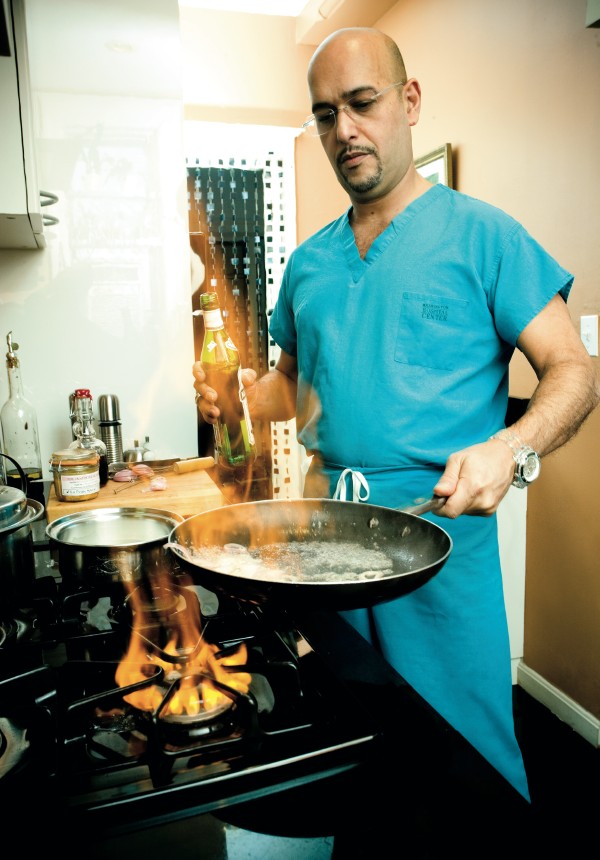The hands that take out a tonsil in the morning may blend a béchamel that afternoon.
Dr. Antonio Pereira is best known as an otolaryngologist at Washington Hospital Center—skilled enough to teach aspiring surgeons the difficult technique of adult tonsillectomy. He has also advised the Food and Drug Administration on medical devices and volunteered at DC’s Whitman-Walker Clinic.
At the age of 40, though, came what Pereira calls “my first midlife crisis.” He took two years off to attend Le Cordon Bleu in Paris and earn a diploma in traditional French cuisine. Each year, he spends two weeks in the south of France as a restaurant sous chef for just room, board, and the joy of cooking.
“It’s very relaxing,” he says.
Pereira fits plenty of relaxing in with his medical work. He lifts weights, swims, and does yoga—all exercises that melt the beurre blanc and cassoulet from his five-foot-eleven frame and leave him with a body-mass index of 21.
Born in France and raised mostly in Puerto Rico, Pereira was sent back to France during summers as a youth. He hated it: “They ate snails.”
But a chef, like a surgeon, can’t be queasy. Cooking is in his blood, he says: Both grandmothers died while preparing food, “one making rice with chicken, the other making biscuits. It was all they did all day.”
Even so, he wanted the formal training—and to escape, temporarily, the world of HMOs and operating rooms. At Le Cordon Bleu, “I was deboning a rabbit. The professor said, ‘You do that very well. Is it different from with humans?’ I said, ‘Yes, the rabbits don’t sue you.’ ”
Lately, Pereira has picked up a pen along with a knife to write an anatomy guide for chefs. “When I studied surgery, we had books,” he explains. “If you want to cut a chicken, you better know where the bones are.” He’ll cover “chicken, duck, quail, turkey—then beef, lamb, game . . . .”
His vocation and his avocation overlap in more than just surgical precision. There are good outcomes in both: the pleasure of others, the ability to fix and create. Students at the hospital ask him for recipes.
Sundays typically find Pereira at the Dupont Circle FreshFarm market, inspecting “the incredible onions, the squashes, the meats” in preparation for an evening’s meal with friends.
He eats snails now, too. “I guess we all grow up sometime,” he says—“if we must.”


















